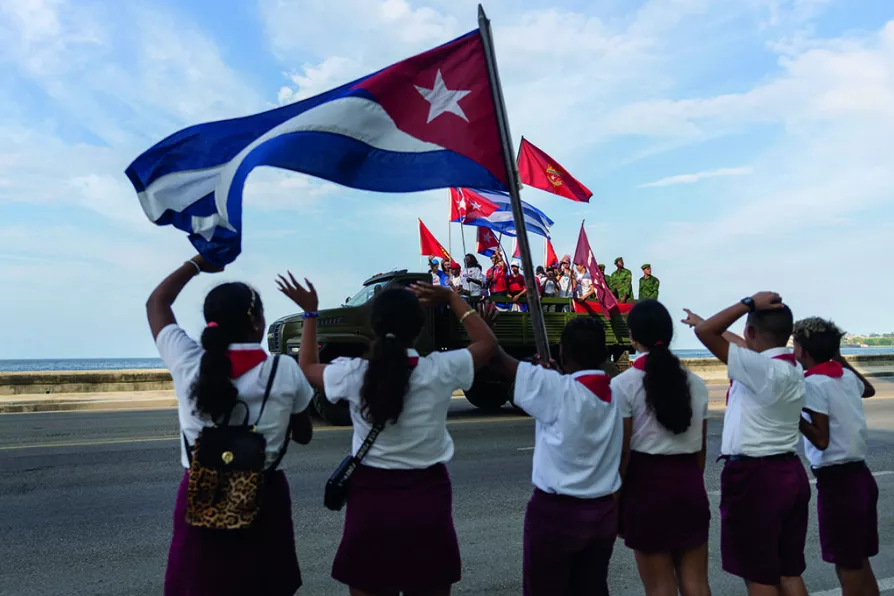RAMZY BAROUD offers six reasons why Netanyahu is prolonging conflict in the Middle East


HAVANA compels you to think about time. It is not the time of the philosophers who debate whether “now” is a speckle or a span.
It is a material time, whose past rolls into the present, and whose future peeks through in the institutions and practices built by the hands of the Cuban people.
Everywhere there are auguries of a utopia not unrealised, but denied. Cuba is anachronistic in both directions, towards both past and future.

A teaching delegation to Cuba offered IAN DUCKETT a powerful glimpse into a schooling system defined by care, creativity and the legacy of the island’s remarkable 1961 literacy campaign

While ordinary Americans were suffering in the wake of 2005’s deadly hurricane, the Bush administration was more concerned with maintaining its anti-Cuba stance than with saving lives, writes MANOLO DE LOS SANTOS

The obfuscation of Nazism’s capitalist roots has seen imperialism redeploy fascism again and again — from the killing fields of Guatemala to the war in Ukraine, writes PAWEL WARGAN











